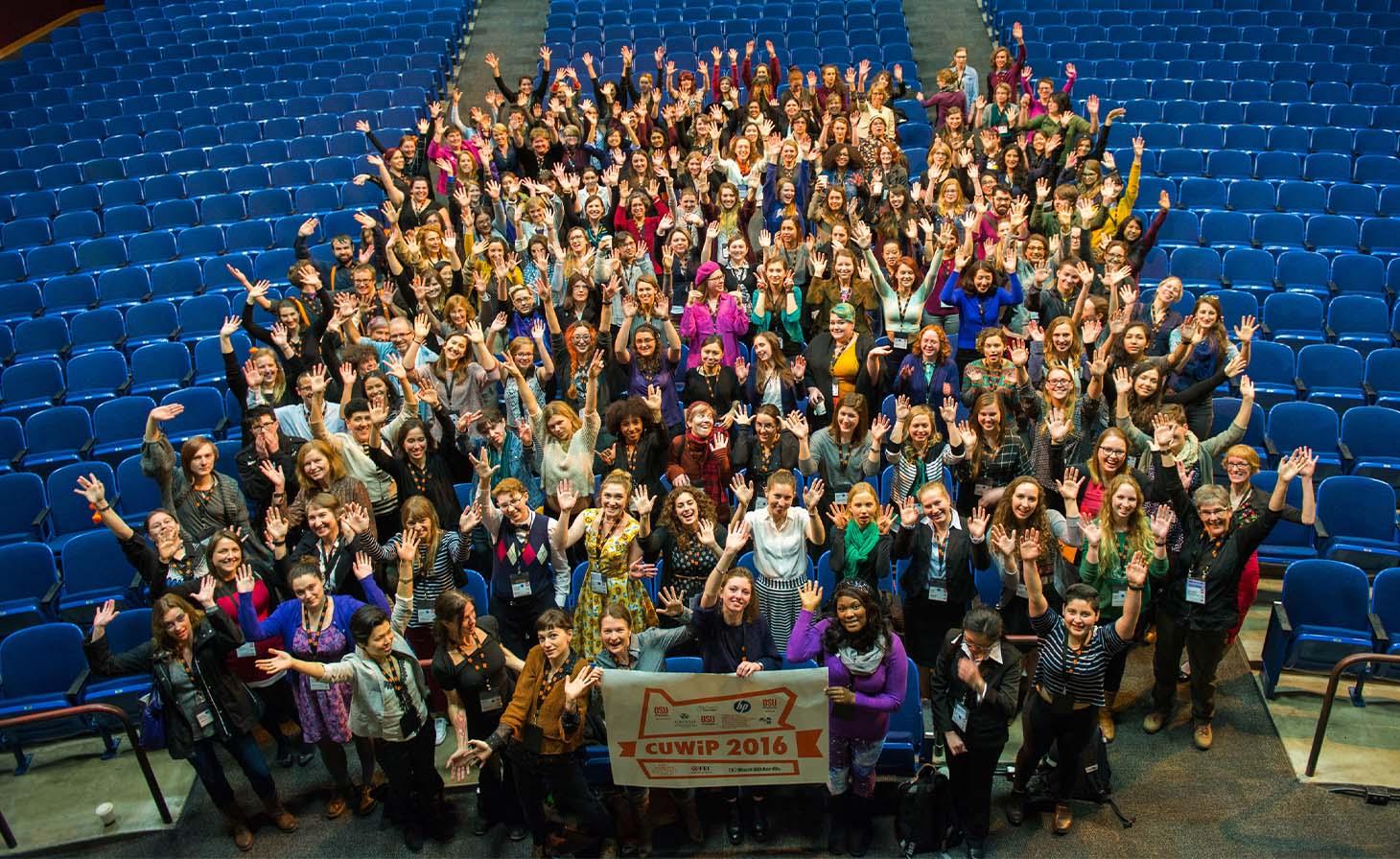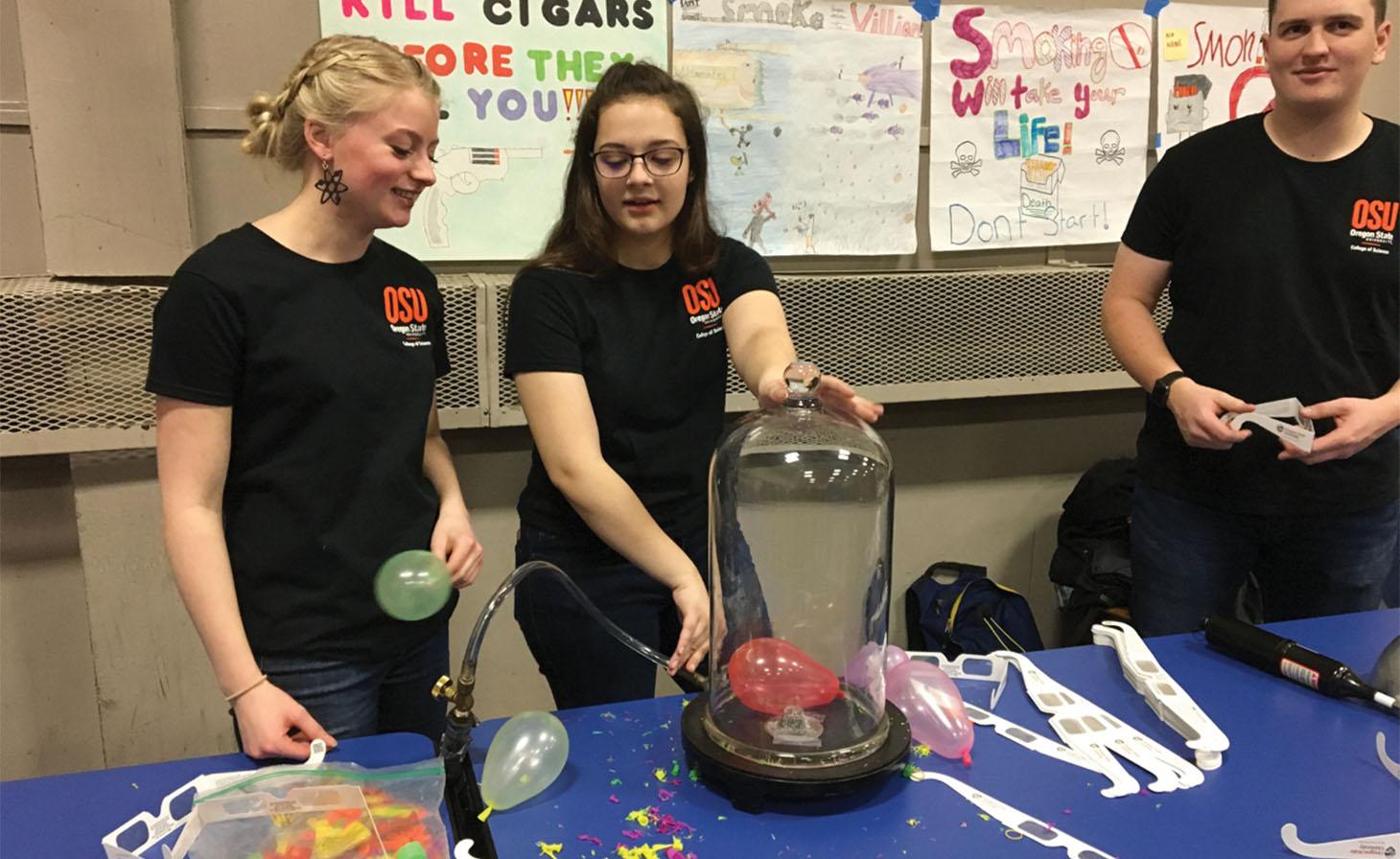Graduate school should provide opportunities to develop skills that will be useful to you in your scientific career. In addition to course work and your particular research project, you should develop a broad knowledge of physics, learn to present your findings to your colleagues and the general public, develop teaching skills, learn how to communicate with colleagues and begin to develop a professional network. In the physics department, we try to provide as many opportunities as possible for you to develop this professional sophistication.
Colloquium
The weekly departmental colloquium features researchers from within OSU and from other universities, national laboratories and from industry speaking on a wide variety of topics. Colloquia are designed to present information that will provide a good introduction to the topic for students, be interesting to faculty and other researchers in different fields, and also present new information for experts.





